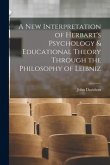This paper explores the metaphysical commonalities and differences between two early modern philosophers: Gottfried Wilhelm Leibniz and George Berkeley. While scholarship has often emphasized the contrasts between their systems-particularly in terms of theological commitments or the structure of substance-this study argues for a stronger alignment in their idealist metaphysics than is typically acknowledged. Both Leibniz and Berkeley endorse the fundamental idealist principle that reality is ultimately mental or spiritual in nature. The paper demonstrates how they converge in their treatment of mental substance and mental states, offering parallel theories about the nature of perceiving subjects and the structure of perception. Furthermore, both philosophers significantly narrow the scope of genuine causality, rejecting material interactions in favor of mental or spiritual explanation-be it through Leibniz's pre-established harmony or Berkeley's divine orchestration. Another key point of convergence is their shared critique of Locke's distinction between primary and secondary qualities. Leibniz and Berkeley both dismantle the assumption that certain qualities (such as shape or motion) exist independently of perception, arguing instead that all sensible qualities are mind-dependent. One frequent objection to idealism is its alleged inability to differentiate between veridical and illusory perception. This paper addresses that objection by examining how both Leibniz and Berkeley handle this concern. Each offers a sophisticated account of error and illusion that preserves a robust distinction between appearance and reality within an idealist framework. Despite these convergences, the paper stresses a critical difference: how each philosopher conceptualizes ultimate reality in relation to finite perceivers. Berkeley's ontology is largely immanent, locating all of reality within the experience of minds and God, whereas Leibniz's system retains a more transcendent structure in which individual monads reflect the universe but remain metaphysically distinct from it. This immanence/transcendence distinction, the paper concludes, is not merely a historical curiosity, but a powerful conceptual axis that can aid in charting broader shifts in modern philosophy and informing contemporary metaphysical and epistemological debates. It opens up new ways to understand how human beings relate to the world-not as passive observers of an external reality, but as participants in a dynamic, mind-infused universe.....
Bitte wählen Sie Ihr Anliegen aus.
Rechnungen
Retourenschein anfordern
Bestellstatus
Storno




![Idealism in National Character [microform]: Essays and Addresses Idealism in National Character [microform]: Essays and Addresses](https://bilder.buecher.de/produkte/65/65521/65521083m.jpg)



